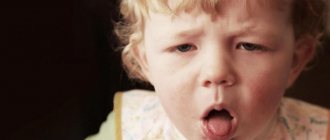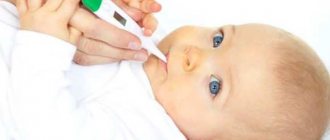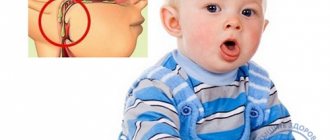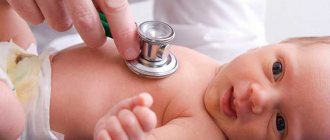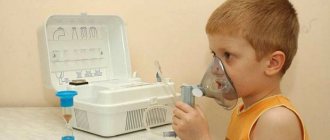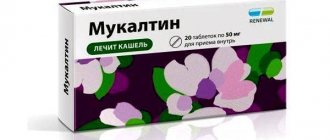Due to weak immunity, newborns often get sick. The most common symptom of the disease is a cough in an infant without fever. A cough is not always a symptom of a cold; allergies, heart disease, and inflammation often manifest themselves this way, so if this symptom appears, not accompanied by a fever, you should immediately consult a doctor.
There are cases of cough that are not associated with illness. For example: when dust gets into the bronchi or trachea, in this case a cough will appear as a protective mechanism that activates the cleansing of the body from foreign bodies. If snot or breast milk accumulates in the trachea, the body calls for a dry cough to help get rid of these accumulations. Also, if a child chokes on saliva or milk, this symptom may appear.
Disease or defense reaction
A cough that is not caused by a disease can be observed in a child only a few times a day and be short-lived, and the baby’s well-being will not deteriorate. To get rid of this symptom, you need to hold the baby upright, so the stuck pieces of food will leave his body faster. You also need to ventilate the baby’s room more often and humidify the air in it, doing wet cleaning daily.
In other cases, the child’s cough will be pathological in nature, and it should definitely be treated under the supervision of a pediatrician.
Wet cough in infants
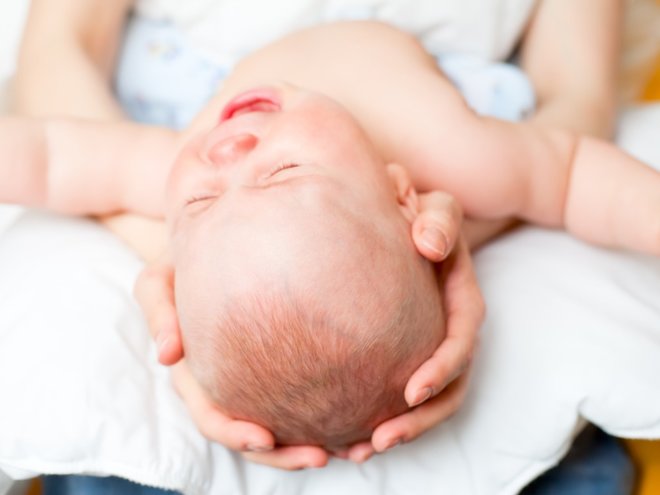
With a wet cough, a large amount of phlegm accumulates in the child's respiratory tract, and the body tries to get rid of it. The causes of a wet cough can be:
- Increased salivation. Physiologically occurs during the period of teething, which begins at the age of 4–6 months. The baby tries to cough up drool, but parents may perceive this as a wet cough.
- Runny nose. Rhinitis, sinusitis and other inflammatory processes in the nasal cavity provoke swelling of the mucous membrane and its hypersecretion. An infant does not know how to blow his nose, so snot flows down the back wall of the larynx, and the body removes it by coughing.
- Infection. Viral and bacterial infections are accompanied by inflammation in the respiratory tract and swelling of the bronchi. This leads to excess mucus secretion and the appearance of sputum, which can stagnate in the respiratory tract. Coughing up mucus clears the bronchi and makes breathing easier. The cough reflex in infants is not sufficiently developed, so doctors prescribe medications to help the child remove phlegm. The most common cause of this cough is bronchitis.
Separately, it is worth highlighting a wet cough, which appears only in the morning and does not cause concern to the child. It is a process of clearing mucus that has accumulated in the respiratory tract at night due to the horizontal position of the body.
Causes of coughing in illnesses
Dry cough
- Acute respiratory viral infection. With this disease, the child begins to have a dry cough, the intensity of which constantly increases, and this coughing gains the greatest strength in the evening and at night. Very quickly, in about 1-3 days, a wet cough replaces a dry cough. Often this phenomenon is accompanied by a runny nose, and the throat becomes inflamed and acquires a red tint.

- Diseases characterized by inflammatory processes in the upper respiratory tract. With this disease, the baby suffers from a dry cough constantly, throughout the day and night. With this disease, treatment should be carried out as quickly as possible, since inflammatory processes spread quickly, and the disease may also be accompanied by: runny nose, headaches, rapid deterioration of the child’s general condition.
- A foreign body of significant size. When a foreign object enters the child’s body through the respiratory tract, the baby begins to cough sharply for quite a long time. If a child swallows an object and begins to suffocate, it is necessary to immediately provide first aid to the child. To do this, you need to put the baby on your knees, head down, and gently tap on the back with your hand, then open your mouth and pull out the obstacle. After providing first aid, you should immediately consult a doctor.
- Also, this symptom can develop due to disturbances in the functioning of the nervous system.
- Poor ecology, gas pollution in the room, which can turn cough and runny nose into a chronic form.
Wet cough
- It often appears during the recovery stage of ARVI; in this case, there is no need to fear for the baby if a wet cough is accompanied by clear mucus. However, if you observe yellow or green snot, this indicates an inflammatory process in the baby’s body.
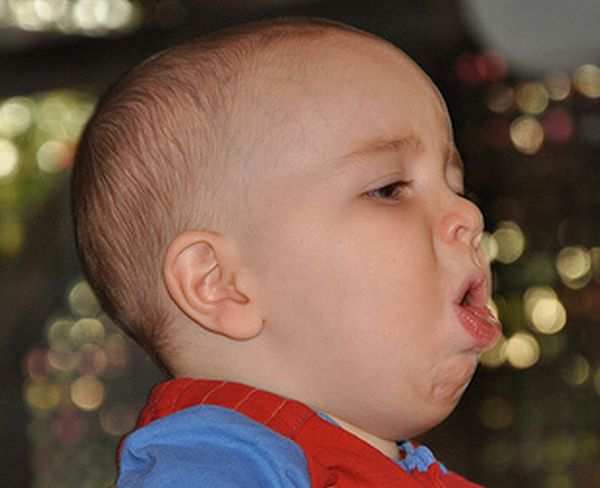
- Allergy. In addition to coughing, this reaction is often accompanied by snot. Allergies appear in newborns prone to diathesis. Some foods, things, animals can cause allergies in a baby. In this case, the cough becomes stronger when the child comes into contact with the allergen, as well as at night. Often a cough and runny nose are accompanied by sneezing, and your eyes may become watery.
- Inflammation of the middle ear. With the help of this symptom, the child’s body reacts sharply to developing inflammation. If a child screams when pressing on the earlobe, then the cough has an inflammatory cause.
Cough and runny nose
A baby's cough and snot can be caused by pathogenic microorganisms that enter the child's body along with the air. With weak immunity, bacteria multiply very quickly, aggravating the course of the disease.
In this case, it is necessary to immediately prescribe treatment to prevent complications.
Cough and wheezing
Due to the narrow passages of the nose, infants are very sensitive to the quality of the air they inhale. If a child's nose is clogged with dust from dirty air, he may develop a runny nose and wheezing, as the baby cannot breathe fully.
To prevent this, it is necessary to frequently engage in wet cleaning, maintain ventilation and humidify the air.
This list describes only the main causes of cough in a baby, and only a doctor can make the correct diagnosis when examining the baby.
How to distinguish a dry cough from a wet one?
A wet cough is a cough that produces sputum. Quite often it is called productive and is considered less dangerous than dry or barking. Typically, a wet cough signals a bacterial or viral infection, allergy, or inflammation of the middle ear.
A dry cough is a cough without sputum or with a small amount of moisture, often paroxysmal and painful for the child. It can turn into barking, with whistling and wheezing. Usually it is a signal of an allergic reaction, inflammation of the respiratory system, that is, the trachea, larynx and pharynx, as well as many other diseases.
There is a misconception that if a baby has a dry cough without fever, then it’s okay, it will go away on its own. However, it is precisely this cough that can be a harbinger of truly life-threatening diseases for the child.
A baby's cough, whether wet or dry, is a reason to immediately consult a doctor. If this is not done on time, then, depending on the disease, complications, including death, are possible.
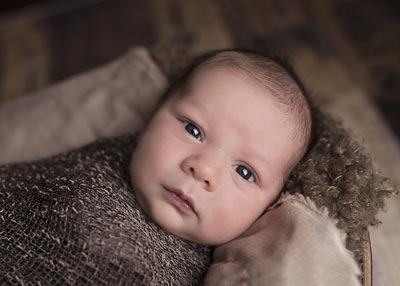
Babies may cough up milk if they choke on it.
How to cure a cough
Only a doctor can prescribe appropriate treatment for a baby, since improper treatment can lead to serious complications.
The only thing parents can do is to ease the child’s cough by following these recommendations:
- Maintaining normal humidity levels in the house. To do this, you need to collect water in containers and place them near working batteries.
- If a runny nose appears along with a cough, you need to put a pillow under the baby’s head so that the snot will go away faster.
- If your baby has a wet cough, you can do a back massage, which will help get rid of phlegm quite quickly.
- It is necessary to ventilate the room more often or walk with the baby in the fresh air, dressing the child well, since a small amount of oxygen only aggravates the course of the disease.
How to treat a cough in a child under one year old: home remedies
Mild coughing can be treated at home. The main thing is to choose a safe method of therapy so as not to harm the baby. Here is what pediatricians advise to use to treat bronchospasm:
- inhalations for babies;
- heating pads and compresses;
- tinctures and herbal decoctions.
Cough treatment for children under one year of age should be prescribed only by a pediatrician . Even “grandmother’s” methods can harm a tiny organism. A weakened immune system contributes to the development of cough. If you toughen up and give your baby healthy foods, the body’s reaction to bacteria will be only slight nasal congestion.
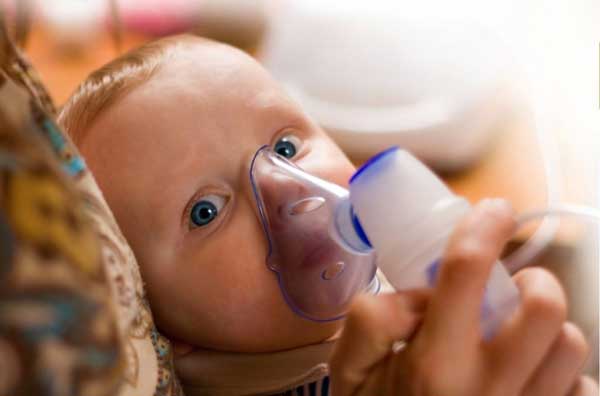
Warm compresses
When a child under one year old coughs, the temperature may rise. In this case, thermal procedures cannot be performed. Compressors and inhalations can only worsen the patient's condition . To a greater extent, folk recipes help in the initial stages of the disease. Compresses can be made in several ways:
- using potatoes - you need to boil the potatoes in their skins and make a puree from them. The mixture is placed on the chest, gauze or parchment paper is first spread. It is necessary for the baby to lie in this position for several minutes;
- with a solution of sea salt - it is necessary to moisten a woolen piece of fabric in this liquid and place it on the baby’s chest. The compress is removed as soon as it begins to cool;
- cake with honey - it must be used carefully so as not to burn the baby’s delicate skin;
- compresses made from camphor oil - suitable for children from four months.
On this topic:
Treatment methods for cough in a child, causes, tips and recommendations
A coughing baby will sleep poorly and be capricious. Screaming can tear your throat and cause a sore throat. This should not be allowed, so parents must reassure the child and alleviate his condition as much as possible.
Cough herbs
The first symptoms of cough should be treated with herbal decoctions. The disease can be avoided if you strengthen your immune system in time. To do this, you should humidify the air in the room and make a decoction from natural plants. Such drinks cleanse the bronchi of phlegm and harmful microorganisms. But you should choose carefully. Pediatricians prefer to prescribe tinctures and decoctions from the following plants:
- plantain and coltsfoot - suitable for treating a four-month-old baby;
- marshmallow and licorice - in the pharmacy you can find concentrated syrups from these herbs;
- elecampane - allowed from the age of six months.
Knowing how to treat a dry cough in a child under one year of age, you can avoid many health problems. Bronchospasm can become chronic if the doctor’s advice is ignored. Parents are obliged to provide maximum assistance to the baby, listening to the recommendations of a specialist. Massage also helps a lot. How to do it should be shown in the pediatrician's office. During sleep, the child may suffocate from spasms, so mom or dad should be nearby.
Traditional methods
Traditional methods of treatment in most cases are not suitable for infants. Therefore, they can be used to treat children only under the supervision of a pediatrician. If, during consultation, the doctor allows treatment with traditional methods, the following may be suitable for infants:
- Egg mixture. For preparation you will need: 200 g of milk, 1 tbsp. l. butter, 1 tbsp. l. honey, 1 egg yolk, 0.25 tsp. soda All ingredients need to be mixed, heated and given to the child 3 times a day.
- Lime tea.
- Chamomile decoction with honey. This decoction will help not only treat coughs, but also eliminate inflammatory processes.
- Tea with lemon balm.
All teas and decoctions are prepared according to the same principle: dry leaves or twigs must be poured with boiling water and allowed to brew. Before treating a baby with these infusions, they must be cooled.
What medications help children with dry cough?
Medicines must be prescribed by a doctor after examination and nothing else. Self-prescription of certain medications can lead to serious consequences.
Products for adults are especially dangerous. For example, adults, when struggling with a dry cough, often drink syrups, which provoke expectoration, but children are not able to expectorate mucus on their own (it must gradually drain away), therefore, they should never be given such medications. They can cause mucus to accumulate in the lungs.
Often, after the first examination, doctors prescribe antiviral drugs, such as:
- Aflubin;
- Viferon;
- Anaferon (children);
- Immunoflazid.
If within 2-3 days the cough does not become wet and does not go away at all, then mucolytic drugs may be prescribed, for example:
- Ambrobene;
- Ambrohexal;
- Lazolvan.
Experts do not advise resorting to traditional medicine and practicing self-medication if the causes of dry cough in children are unknown, but they argue that inhalations can have a positive effect. They need to be done with soda, mineral water or potato broth - very carefully, once a day and only after the permission of the pediatrician.
Prevention
Any cough can jeopardize the health and future development of the baby, so parents need to constantly ensure preventive measures against this symptom.
Prevention is as follows:
- After going outside and when in contact with various types of contaminants, both parents and the baby must wash their hands thoroughly.
- If you see that a person is coughing, you should not bring the newborn close to him, as his immunity is still too weak.
- There is no need to keep flowering plants or animals in the house during the first year of a baby’s life.
- To prevent a cough and runny nose, you should take your child for walks in the fresh air more often or, if this is not possible, at least ventilate the apartment.
- After the first month, you need to start hardening the newborn.
- Under no circumstances should you smoke in front of your child.
- The mother should eat properly and take prescribed vitamins.
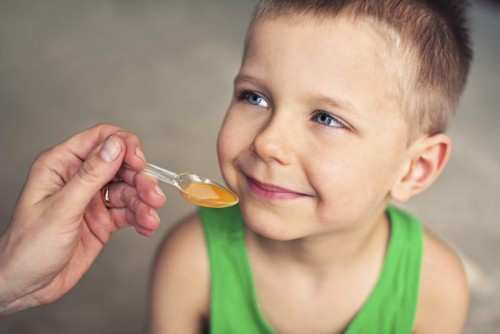
Doctor's prescriptions for ARVI
Often, a cough and runny nose, not accompanied by a fever, indicate an acute respiratory viral infection. Many doctors, based on the situation, recommend treatment with the following methods:
- Antiviral drugs. They call for treating a sick child using immunomodulatory drugs that have antiviral properties. It is important here to choose a medicine that is suitable for the infant; candles are most often used.
- If your baby is suffering from snot, you need to rinse your nose. This procedure is necessary so that the baby’s mucous membranes do not dry out due to mouth breathing, which makes cough treatment difficult. For newborns, rinsing is done using a saline solution, which is dripped into each nostril, three drops. After the procedure, a special oil solution, for example “Ectericide,” is dripped into the baby’s nose once, which will provide protection to the mucous membrane. Under no circumstances should you use antibacterial drops.
If your baby suffers from a cough, it is important to start treatment as soon as possible. Only a doctor can tell you how to properly treat a baby after receiving the results of the necessary studies.
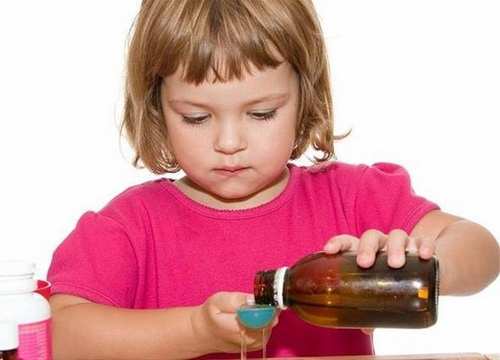
It is important to remember that you should never self-medicate, as this can only aggravate the course of the disease and lead to complications.
Wet cough in infants
With a wet cough, a large amount of phlegm accumulates in the child's respiratory tract, and the body tries to get rid of it. The causes of a wet cough can be:
- Increased salivation. Physiologically occurs during the period of teething, which begins at the age of 4–6 months. The baby tries to cough up drool, but parents may perceive this as a wet cough.
- Runny nose. Rhinitis, sinusitis and other inflammatory processes in the nasal cavity provoke swelling of the mucous membrane and its hypersecretion. An infant does not know how to blow his nose, so snot flows down the back wall of the larynx, and the body removes it by coughing.
- Infection. Viral and bacterial infections are accompanied by inflammation in the respiratory tract and swelling of the bronchi. This leads to excess mucus secretion and the appearance of sputum, which can stagnate in the respiratory tract. Coughing up mucus clears the bronchi and makes breathing easier. The cough reflex in infants is not sufficiently developed, so doctors prescribe medications to help the child remove phlegm. The most common cause of this cough is bronchitis.
Separately, it is worth highlighting a wet cough, which appears only in the morning and does not cause concern to the child. It is a process of clearing mucus that has accumulated in the respiratory tract at night due to the horizontal position of the body.
